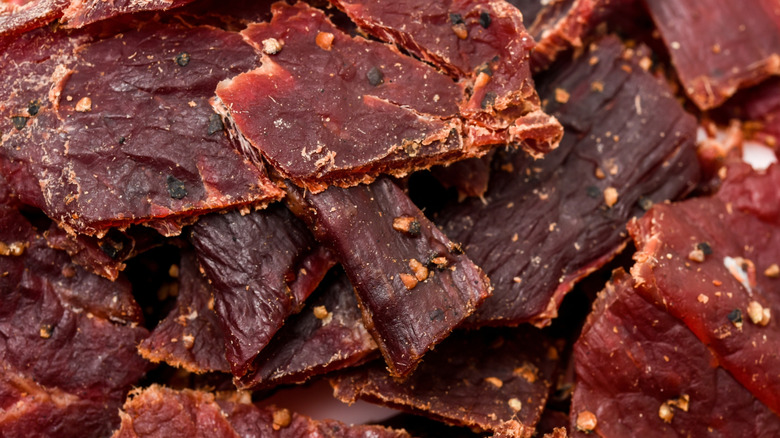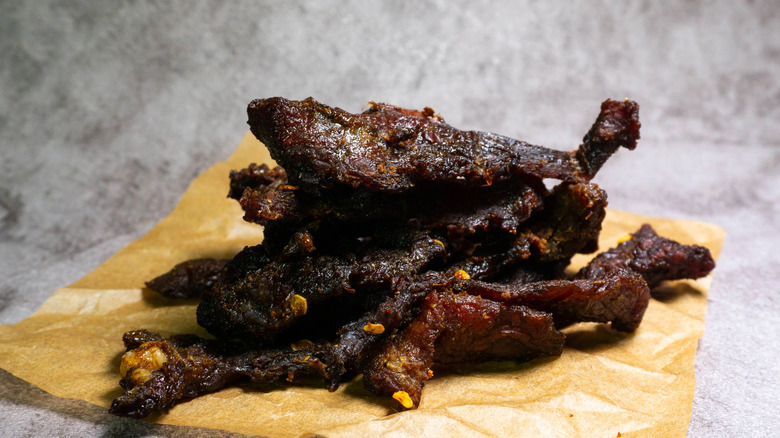The Cut Of Meat You Should Use To Make Beef Jerky
We may receive a commission on purchases made from links.
With dehydrators becoming cheaper and bigger, more and more folks are steering clear of pricey, store-bought beef jerky and are making their own at home. But while prime rib jerky may sound like a decadent treat, not every cut is cut out for jerky. We spoke with Jason and Kristina Walker, co-owners of StarWalker Organic Farms, to find out what cuts are best for a protein-packed snack.
"Our experience has taught us that the right cut is essential to creating jerky that's consistent, flavorful, and long-lasting," they told us. "Lean cuts like top round or sirloin work best because they're low in fat. Fat doesn't dehydrate well and can turn rancid over time, shortening shelf life and affecting flavor." Lean muscle is about 75% water, which is why jerky shrinks and loses so much weight when dehydrated. Fat, however, is only between 5% and 20%, so it's vulnerable to oxidation, the process that causes it to go rancid.
While oxidation doesn't necessarily need moisture, moisture does rapidly accelerate it. As an easy rule of thumb, lean cuts you shouldn't waste on an Instant Pot are ideal for turning into jerky, whereas you should avoid marbled cuts like ribeye and T-bone that love Instant Pots. However, using a tougher cut of meat doesn't mean you have to sacrifice texture, according to the Walkers. "You want a balance between tenderness and chew. Your cut of meat, slice thickness, and marinating techniques can all affect its texture," they said.
How to achieve great texture and taste with lean cuts
To get a great texture that balances tenderness and chew, it's all about you slice it. "If slices are too thick, they won't dry evenly, and if they're too thin, they can become brittle," said Jason and Kristina Walker. "A ¼-inch thickness is the sweet spot." For extra tender jerky, be sure to slice your meat against the grain, meaning cut perpendicular to the muscle fibers running from either end.
"Lastly, many home jerky makers either over-marinade (which can make jerky too salty) or rush the dehydration process, leading to chewy or tough textures instead of a perfect bite," the Walkers said. "For optimal results, we recommend marinating the meat for at least 12 hours." This should give the meat plenty of time to develop flavors without losing its inherent beefiness.
Most recipes call for dehydrating jerky between 165 and 185 degrees Fahrenheit to kill bacteria in your beef. However, you can make more tender and moist jerky by dehydrating it between 140 and 160 degrees Fahrenheit. First, boil your strips of beef in the marinade for five minutes to bring up its internal temperature and kill any bacteria in the liquid. Second, dry your meat thoroughly to remove excess moisture and ensure it starts dehydrating immediately. Finally, dehydrate until the strips develop cracks when bent but don't entirely break.


